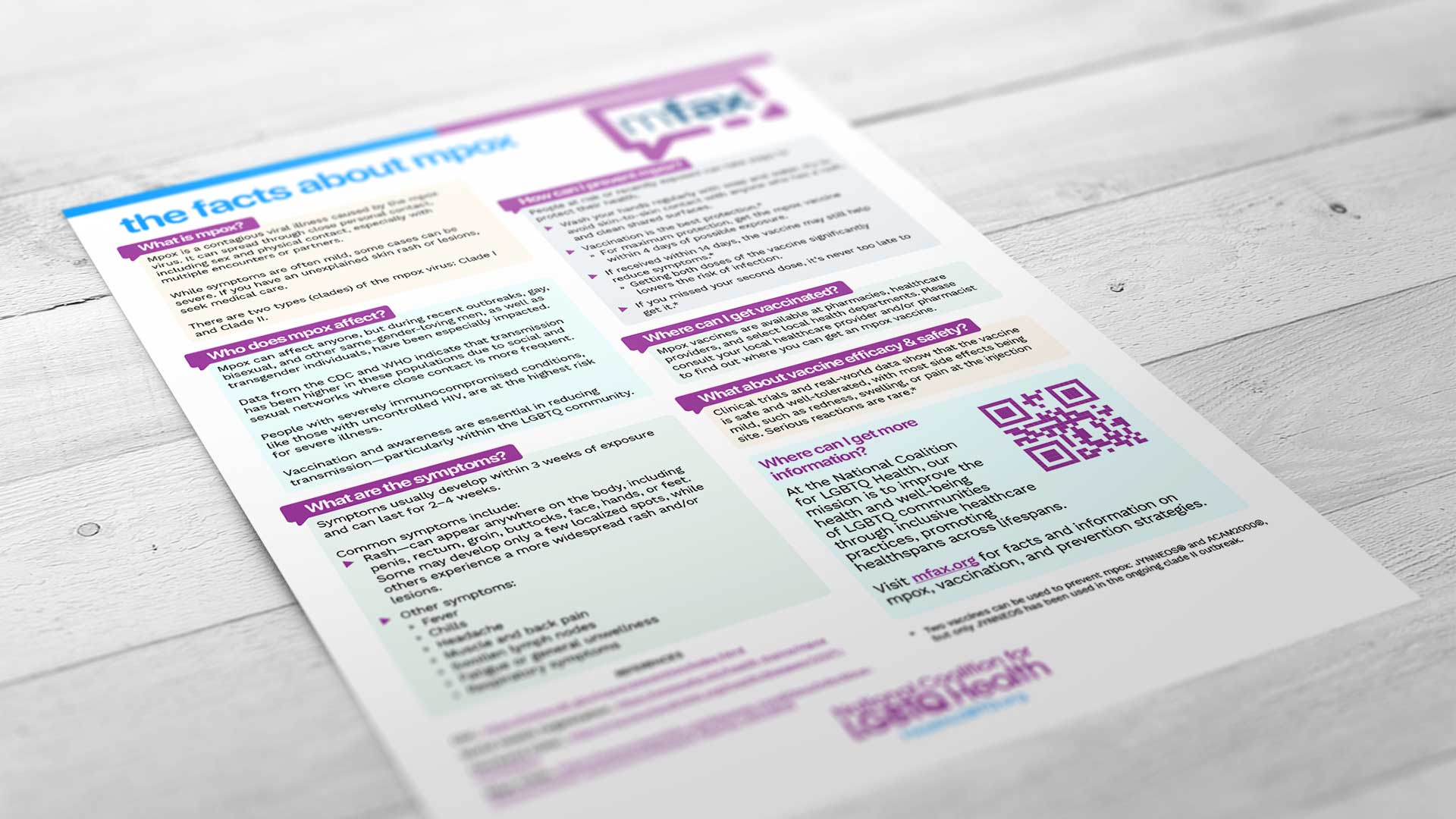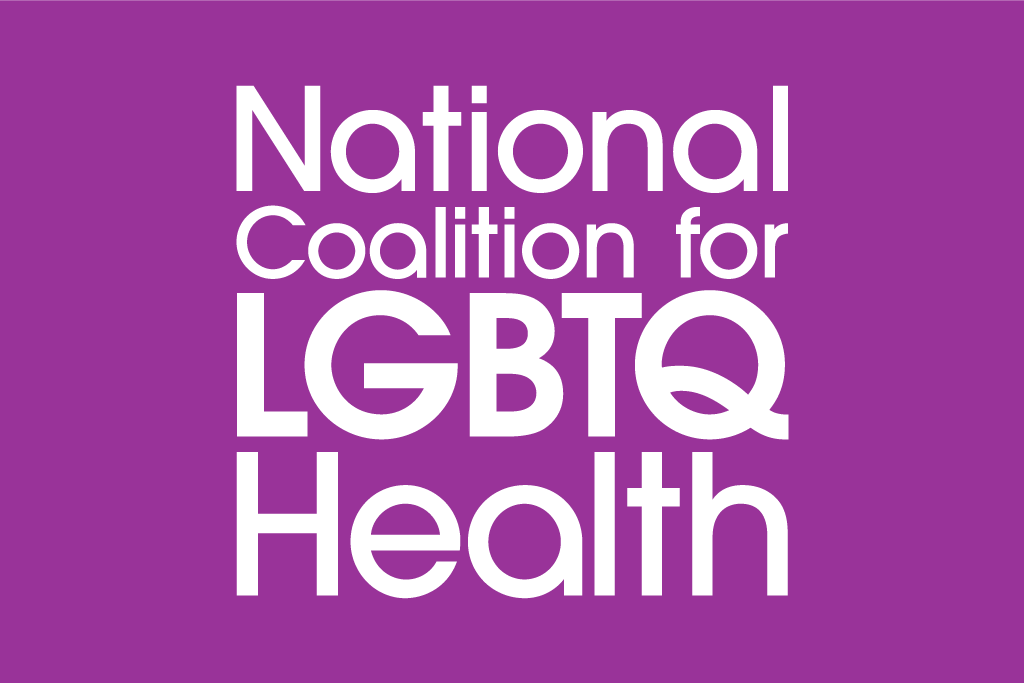
Mpox is still out there.
Mpox (formerly referred to as monkeypox) is a contagious viral illness caused by the mpox virus. It is still actively circulating in the United States. Taking preventative measures, including getting vaccinated, is crucial not only for your health, but also the health of your community.
The National Coalition for LGBTQ Health has developed the mfax education and awareness campaign below, to support the dissemination of facts about mpox vaccination, general prevention, transmission, testing, and treatment, as well as foster community engagement efforts around mpox.

“Is mpox only transmitted through sex?”
No. Mpox can be transmitted through close contact, including, but not limited to, sexual contact. Mpox can be spread through close contact at events and social gatherings, and through contact with contaminated materials and surfaces.

“Does mpox only affect men who have sex with men (MSM)?”
No. Mpox can affect anyone, but during recent outbreaks, Gay, Bisexual, and other Same-Gender-Loving Men, as well as Transgender individuals, have been disproportionately impacted.
Data from the CDC and WHO indicate that transmission has been higher in these populations due to social and sexual networks where close contact is more frequent.
People with severely immunocompromised conditions, like those with uncontrolled HIV, are at the highest risk for severe illness.
Vaccination and awareness are essential in reducing transmission—particularly within the LGBTQIA+ community.

Is it true that mpox is no longer being spread in the United States?
No — mpox is still out there.

Should I get vaccinated against mpox?
Yes! Mpox vaccines can prevent infection and lessen the severity of mpox symptoms. Check with your physician, pharmacist, or healthcare center.
Clinical trials and real-world data show that the vaccine is safe and well-tolerated, with most side effects being mild, such as redness, swelling, or pain at the injection site. Serious reactions are rare.
Mpox vaccines are available at:
- Pharmacies
- Healthcare providers
- Local health departments

“What are the symptoms of mpox?”
Common symptoms include:
- Rash—can appear anywhere on the body, including penis, rectum, groin, butt, face, hands, or feet. Some may develop only a few localized spots, while others experience a more widespread rash.
Other symptoms:
- Fever
- Chills
- Headache
- Muscle and back pain
- Swollen lymph nodes (under the jaw, neck, armpits, or groin)
- Fatigue or general unwellness
- Respiratory symptoms (such as congestion, cough, or sore throat)
Symptoms usually develop within 3 weeks of exposure but can appear sooner.

How do I protect my community from mpox?
Increase awareness about signs and symptoms of infection and prioritize keeping at-risk people safe by getting them vaccinated.
People at risk or recently exposed can take steps to protect their health.
- Wash your hands regularly with soap and water, try to avoid skin-to-skin contact with anyone who has a rash, and clean shared surfaces.
- Vaccination is the best protection. For maximum protection, get the mpox vaccine within 4 days of possible exposure.
- If received within 14 days, the vaccine may still help reduce symptoms.
- Getting both doses of the vaccine significantly lowers the risk of infection.
- If you missed your second dose, it’s never too late to get it.

“Who should get the mpox vaccine?”
The mpox vaccines are available for everyone, except those who have had severe allergic reactions to the vaccines.

Get the facts about mpox
From the HealthLGBTQ Mpox Resource Center
For more information on mpox, visit the HealthLGBTQ Mpox Resource Center at HealthLGBTQ.org/mpox

